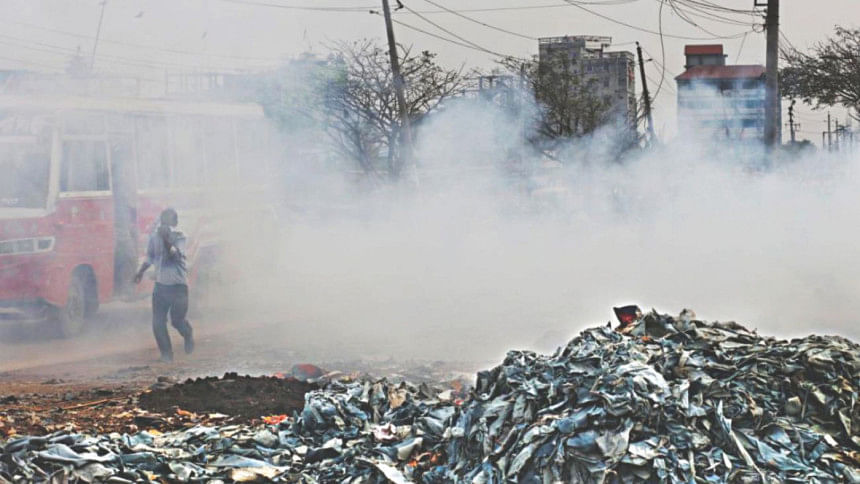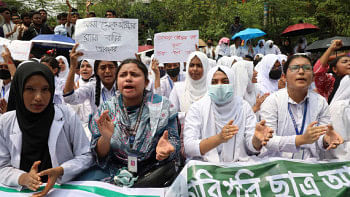Air pollution shortening life expectancy

it is shocking to note the apathy of our policymakers in addressing the issue of air pollution which has been taking its toll on public health for long. A recent international research found that air pollution shortens lives by nearly three years on average and also causes 8.8 million premature deaths annually, mainly as a result of increased mortality from cardiovascular diseases, cancer, and respiratory infections. The study mentioned that compared to other causes of premature death, air pollution kills 19 times more people each year than malaria, nine times more than HIV/AIDS, and three times more than alcohol and also poses a larger public health risk than tobacco smoking.
According to the 2019 World Air Quality Report, air quality in Bangladesh is the worst in the world with Dhaka's air being the second worst among the capital cities. Moreover, a 2017 Lancet report said that the highest number of deaths associated with air pollution took place in Dhaka. Reportedly, the main sources of air pollution in the country are the smog generated from brick kilns, black smoke from unfit vehicles and dust generated from constructions sites, including the mega projects.
Worldwide, a major source of air pollution is coal-fired power plants which emit dangerous levels of sulfur dioxide (SO2), nitrogen dioxide (NO2) and fine particulate matter (known as PM2.5), long exposure to which pose a huge threat to human health. We also have a number of coal-fired power plants operating in the country at present while some of them are under construction. Reportedly, the government has planned to build 17 coal-fired power plants in Cox's Bazar by 2031. Bangladesh Poribesh Andolon and Waterkeepers Bangladesh released a report in November last year according to which Cox's Bazar will be one of the most polluted places in the country when all the power plants start operating. As more and more reports are being released by national and international research organisations on the quality of air that we breath, the government can no longer downplay the issue anymore. It's time for the government to abandon coal-powered projects and look for renewable sources of energy. At the same time, it should take some basic policy decisions, including shutting down the operation of illegal brick kilns, using eco-friendly bricks, containing pollution in the construction sites using standard methods, identifying and making sure vehicles emitting black smoke are taken off the streets.

 For all latest news, follow The Daily Star's Google News channel.
For all latest news, follow The Daily Star's Google News channel. 



Comments